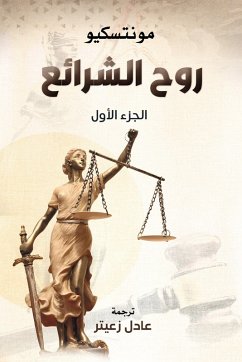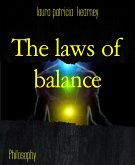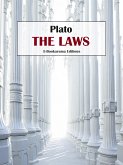The first edition of this book was published in 1748 AD, and it is considered one of the most prominent books that appeared in the Age of Enlightenment that preceded the French Revolution. In it, the French philosopher Montesquieu, one of the most important philosophers of the Age of Enlightenment, reviews the known systems of government: monarchy, dictatorship, and republic, distinguishing between the principles Each of them discusses the principle of separation of the three powers: executive, legislative, and judicial, and the necessity of maintaining a balance between them, and also redefines virtue and honor. This part of the book deals with laws, which are the necessary relationships derived from the nature of things. Divinity has its laws, the material world has its laws, and man has its laws. He is governed by fixed laws like other bodies, and despite his limited awareness, he always violates the laws that God has enacted, and the laws that he himself sets. . It also discusses the impact of the nature and quality of the land on the laws prevailing in the country. For example, fertile countries are often subject to the government of the individual, while non-fertile countries are subject to the government of the group, and the mountain people maintain a more moderate government; Because they are less likely to open, it is easier for them to defend themselves, and they are difficult to attack.
Dieser Download kann aus rechtlichen Gründen nur mit Rechnungsadresse in A, B, BG, CY, CZ, D, DK, EW, E, FIN, F, GR, H, IRL, I, LT, L, LR, M, NL, PL, P, R, S, SLO, SK ausgeliefert werden.









